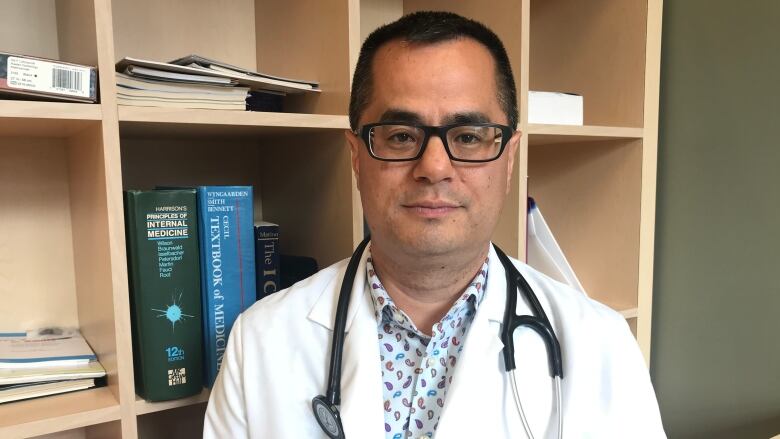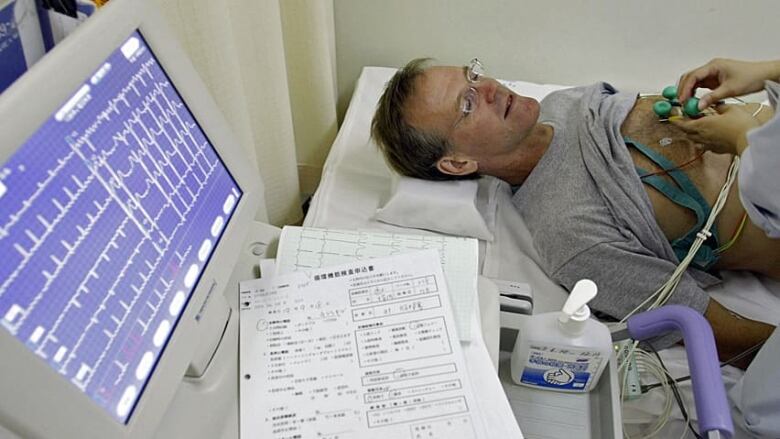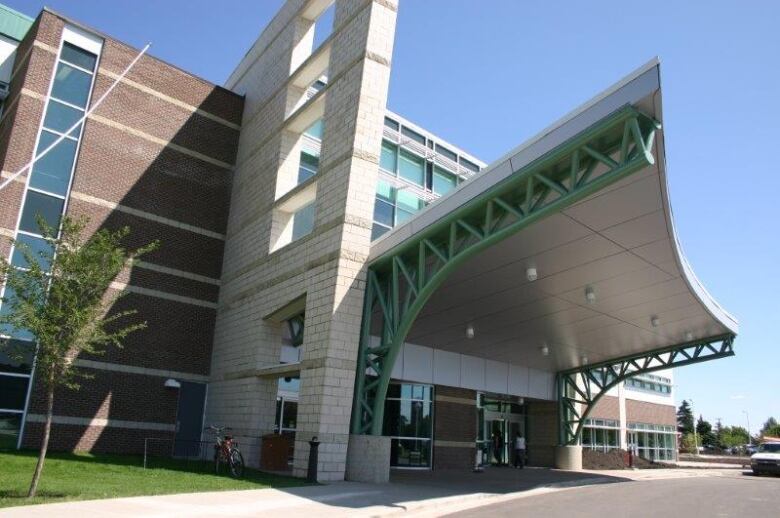AHS report shows need for better cardiac services outside of Calgary, Edmonton
Report says higher heart attack mortality rates in rural Alberta need to be addressed

A long-awaited Alberta Health Services report concludes cardiac care in the province is not working for rural Albertans and it affirms what some doctors outside of the province's two major cities have been saying for years that Red Deer and Lethbridge have enough demand to support a life-saving heart treatment.
Cardiac catheterization, which allows doctors to eliminate life-threatening heart blockages,is available onlyat hospitals in Calgary and Edmonton. That meansheart attack patients around the province have to be treated with clot-busting drugs before being sent by ground or air ambulance for the treatment.
Doctors in Red Deer have been raising the alarm about this set-up for years, saying people in central Alberta are dying because they don't have timely access to the treatment.
"To be very clear this is a very positive step forward," said Dr.KymJim, one of the physicians leading the push for acathlab in Red Deer.
"[The report] clearly indicates that cardiaccatheterizationand advanced services can be delivered to central Alberta and that is the part that matters because it really paves the way for discussions withAHSand government as to how to deliver these services," he said.
- Heart treatment could have saved her husband's life but it wasn't available in central Alberta
- Central Alberta heart attack patients up to 70% more likely to die, doctors warn
- Lethbridge doctors hope life-saving cardiac treatment comes to their hospital soon
The AHS report put together with Alberta Health and input from doctors, patients and families stays clear of making a formal recommendation but does state that "continuing the current provincial models of service was not considered viable" by the oversight committee.
It also concludes that the higher heart attack mortality rates in rural Alberta needto be addressed "to improve health equity of Albertans" and says a cath lab would give patients closer access to care, improve their experience and boost confidence.
The report lays out two different options for addressing the disparity in heart treatment available to rural Albertans. The first involves beefing up cardiac services such as prevention and rehabilitation supports at five regional hospitals, without the addition of cardiac catheterization labs, while the the second option would see extra cardiac supports as well as cardiac cath labs added in both Red Deer and Lethbridge.
Report's mortality findings:
- 58 central Albertans die of heart attack on average per year.
- 0-2 of those deaths would be avoided with a catheterization lab.
- 19-21 deaths would be avoided with other improved cardiac supports such as prevention programs.

Dr. Dan Edgcumbe, AHS central zone medical director, says central Albertans are almost twice as likely to have a heart attack as people living in Calgary and the reasons for that are complex, ranging from lifestyle factors such as exercise levels and smoking habits to varying levels of support.
"There isn't going to be one strategy that fixes all of these problems. Some of these problems are deep and entrenched," said Edgcumbe.
"One of the key messages of the report is although a cath lab would have some impact, that actually cardiac wellness and preventing heart disease is just as important if not more important than catheterization in terms of health outcomes," he said.
According to Edgcumbe, the report helps define what basic services, such as cardiac rehabilitation and cardiac critical care units, need to be in place before catheterization labs can be set up.

Early estimates, included in the report, reveal setting up cardiac catheterization in each city would initially cost$19-21.5 million, with annual operating costs pegged at $7-8.5 million, although Edgecumbe cautions those are very preliminary numbers.
Dr. Jim is now looking for a firm commitment on timelines.
"To be honest, that's what we as a group lack clarity on. We really don't know, to be quite honest, what the process is going forth," he said.
AHS is working on an overarching health service plan for central Albertathat it says will include setting up a catheterization lab in Red Deer. According to Edgcumbe, that plan will be submitted to the province early in 2019.
- MORE ALBERTA NEWS |How much for the weed? That's the big question facing Alberta's newest industry
- MORE ALBERTA NEWS |Grieving Calgary mother wants women to know about life-threatening pregnancy complication
- Read more articles byCBC Calgary, like us onFacebookfor updates and subscribe to ourCBC Calgary newsletterfor the day's news at a glance












_(720p).jpg)


 OFFICIAL HD MUSIC VIDEO.jpg)
.jpg)



























































































